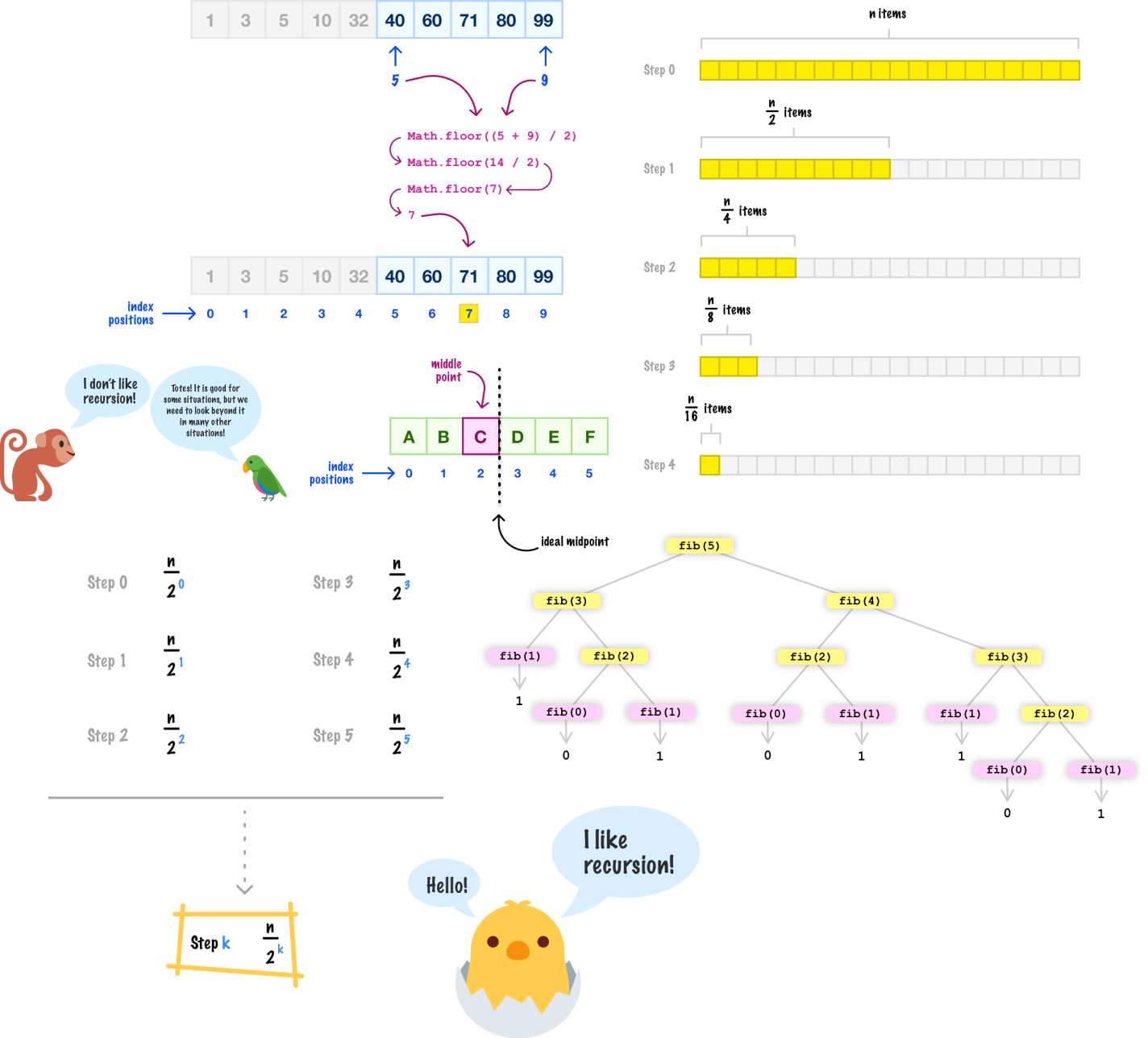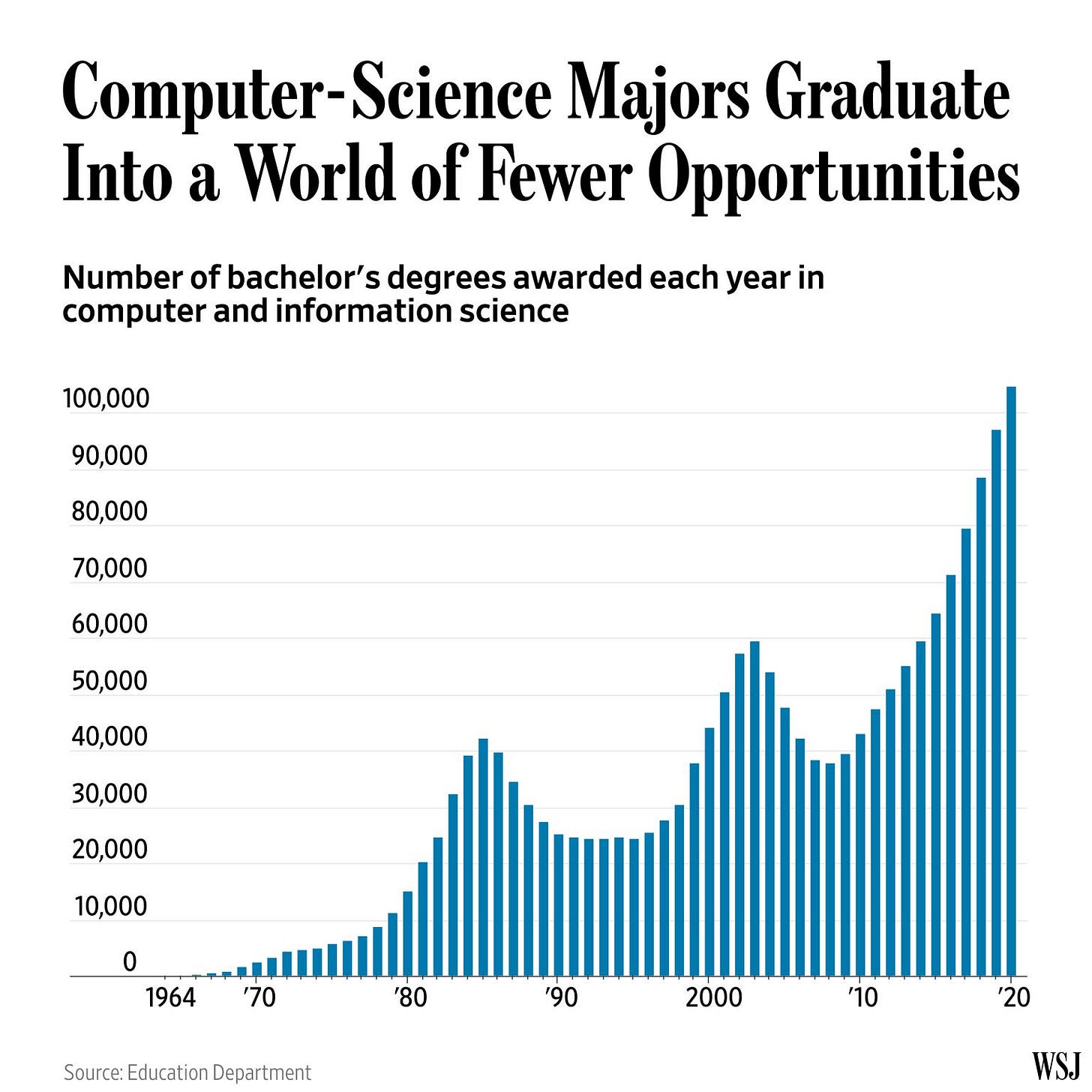Is a CompSci Degree Still Valuable? 😱
In a world where AI can generate working code in seconds, the real value of a CS education lies in understanding why things work, not just how.
Hi everybody - Artificial intelligence is totally changing (and turning upside down) how we learn and build — but what does that mean for how we teach?
I recently sat down with Elisa Cundiff, an award-winning computer science instructor at Colorado State University, to talk about what it means to teach (and learn) computer science in a world where AI can answer your questions, write your code, and even grade your essays.
You can watch the full interview below:
Besides Youtube, you can listen/watch on Spotify and Apple Podcasts as well if that is your jam!
💬 Input / Output Mismatch
A decade ago, earning a computer science degree meant mastering programming languages and algorithms and other related things:
The end result for many of us was to get a lucrative career in the tech industry, armed with the knowledge of how to build sophisticated solutions that a computer can accelerate. As we’ve seen over the last few years, some of these assumptions are on shaky ground. What is the value of a CS education when AI assistants can accomplish similar end results with some simple prompting and without the four (or longer) year struggle in a formal education program?
Digging another level deeper, the landscape is shifting: as AI automates more technical tasks and companies reduce junior hiring, the supply of CS graduates continues to outpace demand:
The result is one of those paradoxes — the discipline has never been more intellectually essential, but its traditional career guarantees are less certain than ever. The inputs that go into a CS degree (time, money, struggle) and the output (stable career) are increasingly mismatched.
🔥 Conclusion
While none of us really know what the future of CS and knowing the fundamentals deeply looks like, one takeaway from our conversation is this:
A computer science degree still matters — not just for learning to code, but for learning how to think critically, reason through complex systems, and question the tools we increasingly rely on.
What do you think? Do you agree with our conclusion? Feel free to comment in this forum thread, reply to this post, or chime in on Twitter / X.
Cheers,
Kirupa 😇





A CS education and degree are profoundly valuable because they provide the foundational knowledge and theoretical understanding that explain why something is done in computing, going far beyond the mere execution of tasks or the generation of code. While AI can certainly generate code quickly, the degree's focus on the 'why' is critically important for true innovation, problem-solving, and adapting to a rapidly changing technological landscape.